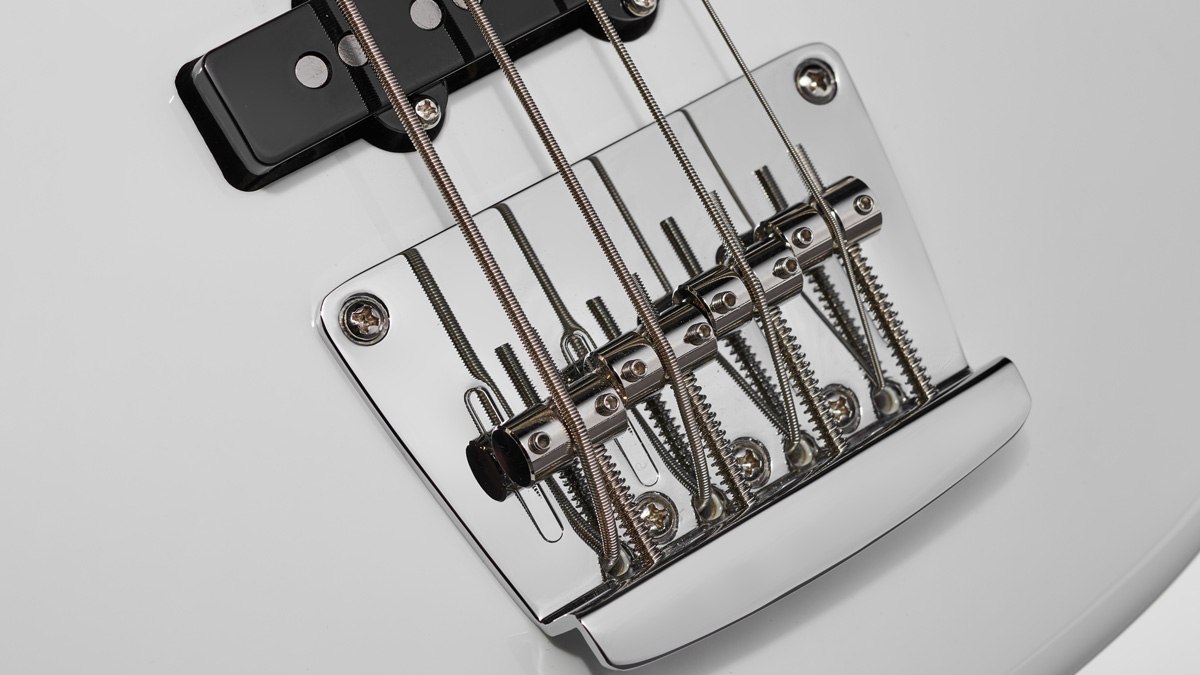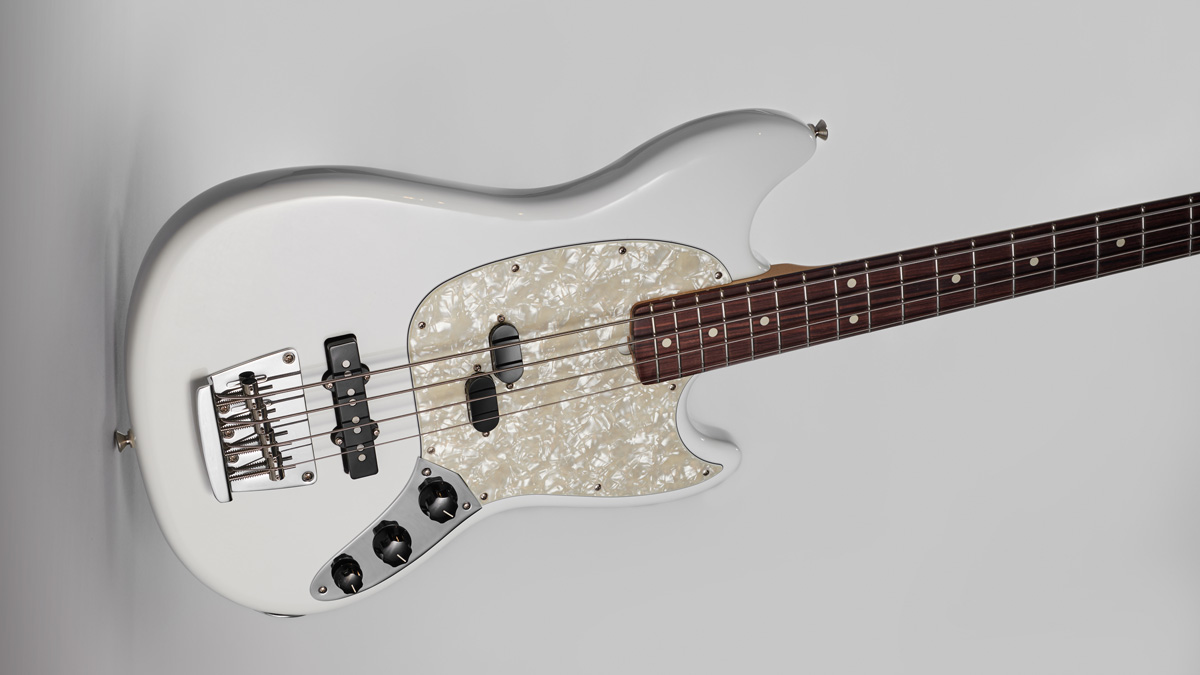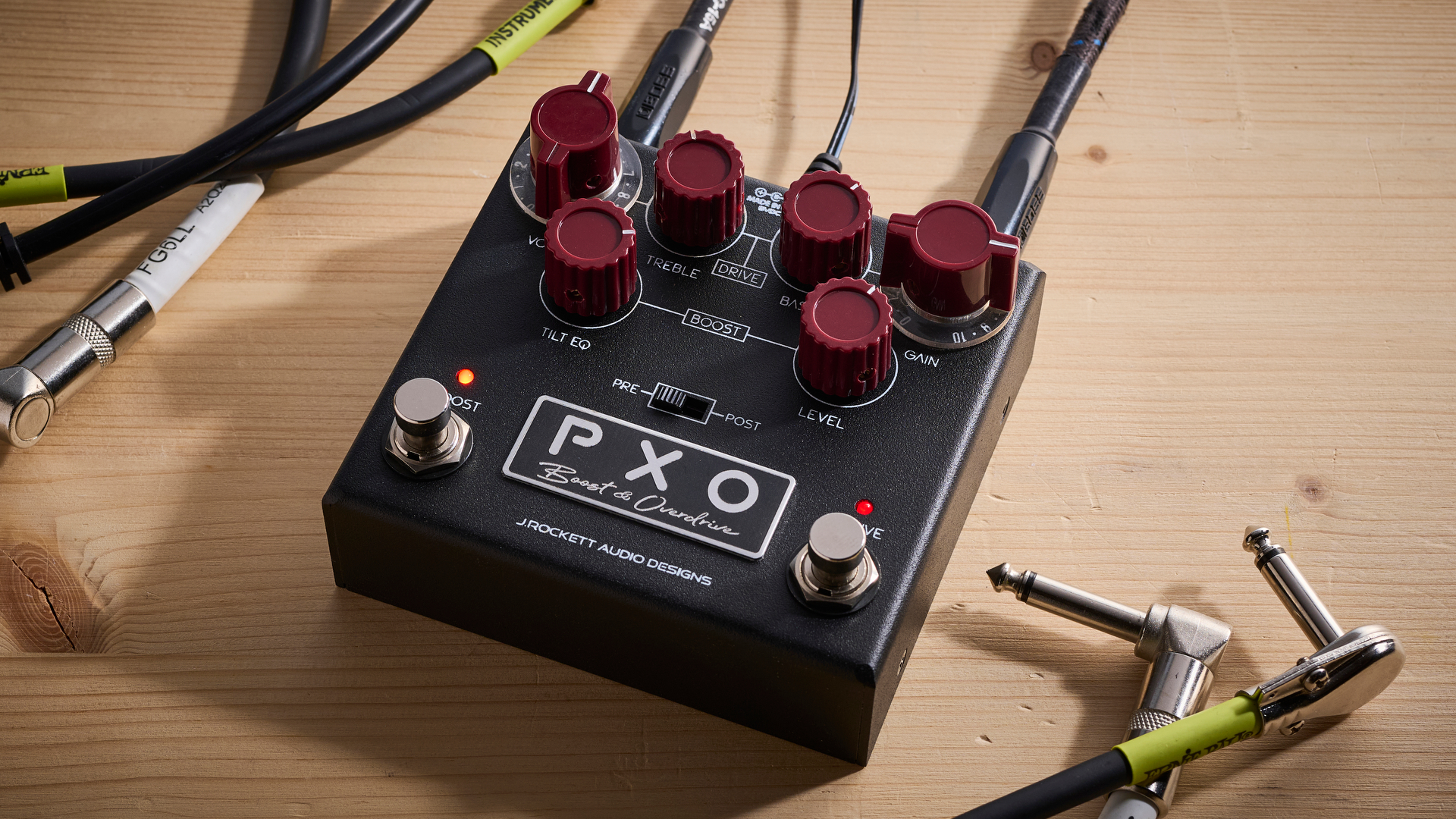MusicRadar Verdict
Certainly worth checking out if you’re looking for a short scale.
Pros
- +
Vibey and a pleasure to play.
Cons
- -
Tone can lack ‘oomph’ in places.
MusicRadar's got your back
Emanating from Corona, California, Fender’s new American Performer bass range comes with several promised changes and modifications, incorporated into the Precision and Jazz models alongside this Mustang model.
Replicated from the original 70s design drawings, the short-scale Mustang has long held a place in bass players’ affections, starting with the playability and comfort offered by its reduced scale length: let’s see how the new iteration holds up.
Build
The Mustang’s rounded body and limited cutaways offer a characteristic look and although there is no contouring, the body edges are well rounded. The Arctic White finish, coated in gloss polyurethane, works very well with the three-ply white pearloid scratchplate, while the chrome hardware, control plate and standard bridge - equipped with a larger base plate than previously - all project a vintage vibe. This is enhanced by the silver 70s Fender logo on the headstock, open-gear machine heads and the ability to run the strings through the body - although strangely, having the option to top-load the strings through the bridge as normal isn’t an option.

White dot position markers feature on the front and side of the rosewood fingerboard and the satin urethane finish applied to the neck is super smooth. The 19mm string spacing prevents the strings from feeling cramped together, given the shorter scale length, and this - in conjunction with the modern C-shaped neck profile - offers a very comfortable playing experience.
The hardware is solid and functional: both pickups - a single-coil unit in the bridge, and a split-coil in the neck position - have been handcrafted in Corona as part of the new Yosemite pickup range. The headstock looks larger than it should be, but that is more to do with the body and neck dimensions; there is some headstock bias, rectified once placed on a strap.
Sounds
The Mustang comes with a volume/volume/tone control set, and the passive electronics for this range have been labelled ‘Greasebucket’. In theory, this means that rolling off the tone control reduces the highs without adding bass to your signal or losing overall gain. In practice, this works just fine and means there is a little less fiddling to find the sounds that work for you. One positive aspect is that all three controls have an effect across the whole turn of each pot.
Both pickups offer the traditional tones you would expect from their location, and it was very noticeable that with both volumes up and the tone control wide open, the sound is fantastically bright and sparkly, especially across the D and G strings. Although the bass plays very well and offers some highly usable tones, it has to be said that the low notes on the E string lack some definition and sound a touch woolly. Using a pick helps, giving the initial string attack more punch. Of course, the shorter scale will have a significant bearing on the tone and performance of the strings as their speaking length has been reduced to 30 inches. This enables a very supple neck that is easily playable with no pressure placed on the fretting hand.
For those looking for a comfortable, playable bass with great traditional tones, the Mustang fits the bill
Playability is very good, effortless in fact, and with no sharp fret ends and a good level of finishing, this is a fine bass. The setup is adequate rather than perfect, and there is some string buzz on the A string, but this can be easily adjusted.
So what do we have here? Short scale basses continue to prove popular, as they have for several years. What you lose in note clarity, tone and character with the Mustang, you make up for with a very enjoyable bass that ticks many boxes for those starting out - or for those who just find a long-scale bass too much effort. It’s up against some competition at this price but then again, it’s an American Fender, with all the cachet that that offers.
For those looking for a comfortable, playable bass with great traditional tones, the Mustang fits the bill.
“I used everything I knew about music”: How Green Day exceeded expectations with their most ambitious song
YouTube just added AI tools that makes musicians, library music and video editors redundant
“Every one of them said yes without hesitation": Hank Marvin and Roger Taylor have just remade a '60s classic for charity










